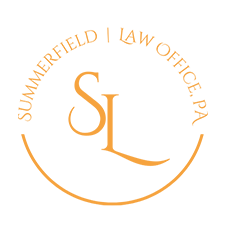Your legacy is more than just the material possessions you leave behind. It’s about ensuring your wishes are carried out and your loved ones are taken care of. That’s why having a comprehensive estate plan is crucial.
The Consequences of Not Having an Estate Plan
Without an estate plan in place, you risk leaving your affairs in disarray, causing unnecessary stress and financial burdens for your loved ones. Failing to plan can lead to unintended consequences, such as:
- Your assets being distributed according to state laws, rather than your wishes
- Increased tax liabilities for your beneficiaries
- Lengthy and costly probate processes
- Potential family conflicts and disputes over your assets
By taking the time to create a comprehensive estate plan, you can avoid these pitfalls and ensure that your legacy is protected and your loved ones are provided for.
Wills
A will is a legal document that outlines how you want your assets and possessions to be distributed after your passing. It allows you to name beneficiaries, appoint guardians for minor children, and designate an executor to oversee the distribution of your estate.
While a will is a crucial component of an estate plan, it has limitations. It does not provide protection against probate, and it can be contested by disgruntled parties, leading to potential legal battles.
The following is a DRAMATIZATION AND IS NOT AN ACTUAL EVENT: Imagine a scenario where a person passes away without a will. In this case, their assets would be distributed according to state laws, which may not align with their wishes or their family’s best interests.
Revocable Living Trust
A revocable living trust is a legal arrangement where you transfer ownership of your assets to the trust during your lifetime. You maintain control over the trust and can modify or revoke it at any time.
One of the primary advantages of a revocable living trust is that it allows your estate to bypass probate, which can be a lengthy and costly process. It also provides privacy, as the details of the trust are not made public, unlike a will.
The following is a DRAMATIZATION AND IS NOT AN ACTUAL EVENT: Consider a situation where a wealthy individual wants to keep their estate matters private and avoid the probate process. In this case, a revocable living trust would be an ideal solution, allowing them to maintain control over their assets while ensuring a smooth and efficient transfer to their beneficiaries.
Irrevocable Trust
An irrevocable trust is a legal arrangement where you permanently transfer ownership of your assets to the trust. Unlike a revocable living trust, an irrevocable trust cannot be modified or revoked once it is established.
Irrevocable trusts are often used for asset protection and tax planning purposes. They can help shield assets from creditors and reduce estate taxes, but they also require you to relinquish control over the assets transferred to the trust.
The following is a DRAMATIZATION AND IS NOT AN ACTUAL EVENT: Imagine a business owner who wants to protect their assets from potential lawsuits or creditors. In this case, an irrevocable trust could be a suitable option, allowing them to transfer ownership of their assets to the trust while still benefiting from the income generated by those assets.
Powers of Attorney
Powers of attorney are legal documents that grant someone else the authority to act on your behalf in specific situations. There are two main types:
- Financial Power of Attorney: This document allows you to designate someone to manage your financial affairs if you become incapacitated or unable to handle your own affairs.
- Healthcare Power of Attorney: This document enables you to appoint someone to make healthcare decisions on your behalf if you are unable to do so yourself.
Having powers of attorney in place can ensure that your wishes are carried out and your affairs are managed properly if you become incapacitated.
Advance Healthcare Directive/Living Will
An advance healthcare directive, also known as a living will, is a legal document that outlines your preferences for medical treatment and end-of-life care. It allows you to specify your wishes regarding life-sustaining measures, such as whether you want to be kept on life support or receive artificial nutrition and hydration.
Including an advance healthcare directive in your estate plan ensures that your healthcare wishes are respected and can provide peace of mind to your loved ones, who may otherwise face difficult decisions during an emotionally charged time.
The Importance of Customization
Estate plans are not one-size-fits-all. Each individual’s circumstances, goals, and priorities are unique. By working with an experienced estate planning attorney, you can create a tailored plan that addresses your specific needs and goals.
An attorney can help you navigate the complexities of estate planning, ensuring that your plan is legally sound and compliant with the latest laws and regulations. They can also provide valuable guidance on strategies for asset protection, tax planning, and legacy preservation.
Conclusion
Creating a comprehensive estate plan is an essential step in securing your legacy and protecting your loved ones. By understanding the different types of estate planning tools available, you can make informed decisions that align with your unique goals and wishes.
Remember, failing to plan can lead to unintended consequences and unnecessary stress for your loved ones. Don’t leave your legacy to chance.
Take the first step towards safeguarding your future by contacting our experienced estate planning attorneys for a consultation. We’ll work closely with you to understand your unique circumstances and create a tailored plan that provides peace of mind and ensures your wishes are carried out as intended.
FAQs
1. What is the primary purpose of a will?
A will is a legal document that outlines how you want your assets and possessions to be distributed after your passing. It allows you to name beneficiaries, appoint guardians for minor children, and designate an executor to oversee the distribution of your estate.
2. What are the advantages of a revocable living trust?
A revocable living trust allows your estate to bypass probate, which can be a lengthy and costly process. It also provides privacy, as the details of the trust are not made public, unlike a will. Additionally, you maintain control over the trust and can modify or revoke it at any time.
3. When is an irrevocable trust appropriate?
Irrevocable trusts are often used for asset protection and tax planning purposes. They can help shield assets from creditors and reduce estate taxes, but they also require you to relinquish control over the assets transferred to the trust.
4. Why are powers of attorney important in estate planning?
Powers of attorney allow you to designate someone to manage your financial affairs and make healthcare decisions on your behalf if you become incapacitated or unable to handle your own affairs. Having powers of attorney in place can ensure that your wishes are carried out and your affairs are managed properly.
5. What is the purpose of an advance healthcare directive/living will?
An advance healthcare directive, also known as a living will, outlines your preferences for medical treatment and end-of-life care. It allows you to specify your wishes regarding life-sustaining measures, such as whether you want to be kept on life support or receive artificial nutrition and hydration.
Safeguard Your Legacy with Experienced Estate Planning Attorneys
Creating a comprehensive estate plan is a critical step in securing your legacy and ensuring that your wishes are carried out as intended. However, navigating the complexities of estate planning can be overwhelming, especially without the guidance of experienced professionals.
At our firm, we understand the importance of tailoring estate plans to meet the unique needs and goals of each individual. Our team of experienced estate planning attorneys will work closely with you to understand your circumstances, address your concerns, and create a customized plan that provides peace of mind and protects your legacy.
Don’t leave your future to chance. Contact us today to schedule a consultation and take the first step towards safeguarding your legacy. Call us at [phone number] or visit our website at [website URL] to learn more about how we can help you create a comprehensive estate plan that aligns with your wishes.





